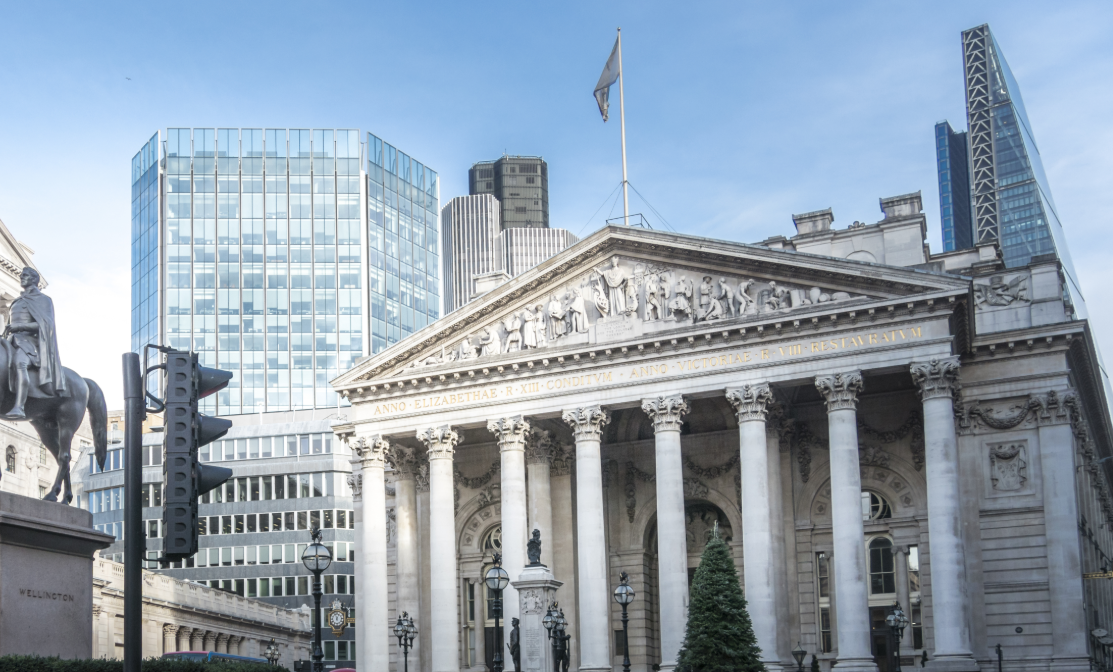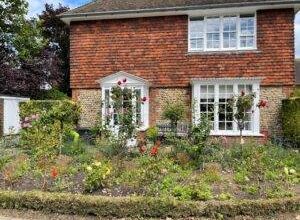Roy Sebag discusses The Natural Order Of Money

Entrepreneur and economic theorist Roy Sebag was one of the few to predict the 2008 Financial Crisis. Now, he believes the UK’s monetary system itself is breaking down, attested by record high inflation, and requires replacing to ensure prosperity for decades to come.
He sets out his natural money theory in bestselling new book The Natural Order of Money. For those seeking a more sustainable future, the book provides a novel argument grounded in the brute facts of nature.
In short, your argument is that the monetary system must be underpinned by tangible assets, such as food, fuel, and precious metals, as opposed to being determined through a floating exchange rate. As a respected entrepreneur and investor, how have you arrived at such a radical economic proposition?
The ideas I present in The Natural Order of Money aren’t that radical and I think most readers will agree with my general premises. Having a ‘natural money’ anchor economic systems has been the default practice in most societies both ancient and modern until the very recent past.
My own contribution to this perennial enquiry into the nature of money is really to provide the modern individual with a kind of reminder. To remind them about the basic laws of nature that govern economic cooperation.
To show why the exchange of goods and services reflects something more than just one’s personal subjective desires. These days especially, we are susceptible to forgetting these principles.
But the issues we are now facing undermine these illusions and invite us to ground our understanding of prosperity.
How can you be sure that a natural money system will be better than the current fiat system?
There are quantitative and qualitative reasons I can provide which may help illustrate this point. Let’s begin with the quantitative. While we have seen inflation in the cost of basic necessities from bread and road fuel to beef rise by 30-40 percent in four years, when adjusted to the price of gold these items are actually cheaper today. Similarly, the price of a barrel of oil is the same today as it was a century ago when priced in gold.
Quantitatively, we can reason that inflation would be arrested entirely if money were gold. Now a sceptic may object and argue that, at some level, inflation is good and even necessary. In my book, I show that inflation is unnatural and that an economy devoid of inflation is closer in balance with the natural order. My position provides a qualitative argument for why an economy anchored to natural money would be superior.
Why do you think there is so much political resistance to the adoption of an economic model along your lines?
I think a good analogy might be from our own individual lives. I think it’s always easier to make minor decisions than major ones. Sometimes, we become complacent – deferring the important decisions for later and that makes us reactive rather than proactive. It is only with the benefit of hindsight that we recognise we should have acted sooner.
Perhaps we can only see a mistake once we are free from it. This is a roundabout way of saying that our political leaders and their economic advisors are stuck in a quandary with the fiat monetary system. They are under a tremendous amount of pressure and it’s difficult to see that a major decision can be made now.
This is why, in my view, their support of fiat money, as I have shown in The Natural Order of Money, make no sense to the average person.
On the bright side, the longer we proceed on the current path, the more obvious it becomes to the ordinary voter that something drastic has to be done about our economy and our monetary system.
Is it realistic to expect that this resistance can, in practice, be overcome?
If history is any guide, then yes. Every fiat monetary system in history has failed. They usually fail within a few decades. While the UK went off the gold standard in 1931, the pound was essentially pegged to the US Dollar, which remained on the gold standard until 1971. So, we are only 51 years into the latest experiment with fiat money and I would be amazed if it lasts another 49.
Why is the agricultural sector at the heart of your natural monetary theory?
Because food is the lifeblood of human cooperation. Without food, you starve; without fuel, the car won’t drive; and without elements, the computer and the machine can’t run. Everything begins with the farmers and closely behind them, the miner and fuel producer: those at the centre of the ‘real economy’. Our economic system depends on this reality. My book argues that our economy must also reflect it. The role of money is to do just that. To ensure that every economic actor is accountable to the farmer and through the farmer, the natural world itself.
Wouldn’t a renewed focus on the ‘real economy’, as you call it, lead to greater environmental harm due to an increased incentive for exploitation?
I would argue that it is nature, rather than people, which ultimately makes that objective judgement upon our actions. It is nature that demonstrates quite clearly why fracking for hydrocarbons is foolish and unsustainable.
On the other hand, nature shows that it may be more sustainable to heat one’s home with wood rather than depending on natural gas produced in Siberia. We have to trust nature and its signals.
Natural money is a signal from nature and would reflect the limits of our negotiations with it. In my book I show why it would be inefficient to frack or to use as much fertilizer or pesticides as we do today under a natural monetary system. On the other hand, producing more minerals and fuels locally would very much be possible.
Making this activity more local brings with it increased accountability. If the activity results in long-term damage to our local environments, if it destroys our soil or our water, a community can clearly see the activity is unsustainable and take appropriate action.
How do you think businesses at large will respond to your proposal?
They will resist it. Large businesses today are primarily engaged in rendering services. They employ very little real capital. Whatever capital is employed is primarily used to engineer rising share prices for the benefit of shareholders. Our so-called ‘large businesses’ are just moving fiat money around electronically.
They optimise their labour force at the margin such that they employ the least number of workers at the lowest possible wage. Moreover, the ones they do employ are assumed to be fluid and replaceable. Paying wage earners with natural money would shift the balance of power. At first, this will mean that large businesses have to focus on their workers and their customers.
Eventually, the businesses that provide superior goods and services, performing better than their peers and making long-term investments etc., would end up doing well on a natural monetary standard.
How would the adoption of your economic model impact the value of non-currency assets?
It is not entirely possible to predict. If inflation is arrested, our conception of assets will change. Asset classes will be measured for real growth – real cash flows. They will no longer be surfing on the inflationary wave which exaggerates their returns. A house would be viewed more as a home, as a place to live in, rather than a strategic necessity within the property ladder game.
Another implication would be that one’s vocation and personal economic activity would become the primary means of growing wealth. That is to say, if one merely saved more than they spent and increased their earnings power, their savings would endure and not be diminished by external factors such as inflation or speculative financial bubbles.
You are noted as being one of the few investors to have spotted the 2008 Financial Crisis before it arrived. Is the current economic crisis the sign of worse to come?
I do think it’s worse this time. I don’t fully believe we’ve resolved any of the issues from 2008. The decision by central bankers around the world to print trillions of dollars in 2020 in the face of the Covid-19 pandemic has made it very difficult to see where the economy can find its base again so long as we remain on a fiat monetary system. If something isn’t done about our monetary system, we will see sustained rates of inflation for many years, continued shortages in the things we need, and pressure on an overly leveraged banking system and by extension bank-financed assets from property to shares.
What do you think business leaders will gain most from reading your book?
They will discover that there are limits to their subjective ideas. That true success is measured by the natural world and if the choice is made to operate according to a more subjective standard, one must still remain accountable to the natural standard by using natural money.
Entrepreneur and investor Roy Sebag is the author of The Natural Order of Money.
It provides those who are critical of the modern capitalistic system, and those who are environmentally conscious, with an economic theory that prioritizes equitability and sustainability.
You can learn more about his natural money theory here




